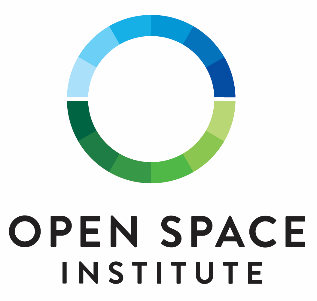
- Details
- By Native Oklahoma
The Open Space Institute (OSI) has announced the protection of 931 acres of land in Georgia’s Twiggs and Bibb counties. Conservation of the land will support the long-term protection of the nearby Ocmulgee Mounds and bolster efforts to preserve the Ocmulgee River floodplain as Georgia’s first National Park and Preserve.
The newly protected properties will ultimately be transferred to the U.S. Fish and Wildlife Service (USFWS) as additions to the 8,600-acre Bond Swamp National Wildlife Refuge (NWR).
The two properties, known together as the “Branson Tracts,” are considered priority acquisitions by the USFWS and the Ocmulgee National Park and Preserve Initiative (ONPPI) for their role in protecting cultural resources important to the Muscogee (Creek) Nation, creating new public hunting and fishing opportunities, and preserving wildlife habitat. Preservation of the property will also protect wetlands and uplands along Stone Creek and the Ocmulgee River floodplain, a wetland of national conservation priority.

The tracts are located a short distance from traditional Muscogee (Creek) Nation lands and Ocmulgee Mounds National Historical Park. OSI has worked with ONPPI to acquire the properties as part of a larger effort to conserve these culturally important lands. The Branson Tracts are part of a 200,000-acre landscape that is considered sacred by the Muscogee (Creek) Nation.
In 2022, OSI added nearly 1,000 acres to Ocmulgee Mounds National Historical Park, doubling its size and providing significant protection for the Ocmulgee Mounds. The mounds are some of the most important examples of ancient Indigenous engineering in North America.
The properties were acquired from conservation-minded landowner Martha Bond Branson. Fifty acres of the properties are in Bibb County and within the current boundaries of Bond Swamp NWR, and 881 acres are in Twiggs County, adjacent to the Refuge. The properties were saved with support from the Knobloch Family Foundation, Green South Foundation, and Peyton Anderson Foundation
More than half a million people live in close proximity to the Bond Swamp NWR, making public access to outdoor recreation critically important in this region.
“The benefits of protected land should be for everyone,” said Maria Whitehead, OSI’s Senior Vice President of Land, Southeast. “The protection of the Branson Tracts serves the residents of the Macon-Warner Robbins area, but also safeguards the site of 17,000 years of Indigenous history. It’s a meaningful conservation accomplishment and the next step in creating the National Park and Preserve. We at OSI are deeply grateful to the many partners who worked so closely together to conserve these lands for cultural preservation and public recreation, forever.”
“This acquisition represents a generational commitment to the conservation and expansion of public hunting and fishing lands in middle Georgia,” said Seth C. Clark, Executive Director at Ocmulgee National Park and Preserve Initiative and Mayor Pro Tempore of Macon-Bibb County. “The Ocmulgee National Park and Preserve Initiative is grateful for the Open Space Institute, and the Peyton Anderson, Knobloch Family, and Green South Foundations for their dogged dedication to realizing the vision of filling the current and future public boundaries as we work to create Georgia’s first National Park and Preserve.”
Help us defend tribal sovereignty.
At Native News Online, our mission is rooted in telling the stories that strengthen sovereignty and uplift Indigenous voices — not just at year’s end, but every single day.
Because of your generosity last year, we were able to keep our reporters on the ground in tribal communities, at national gatherings and in the halls of Congress — covering the issues that matter most to Indian Country: sovereignty, culture, education, health and economic opportunity.
That support sustained us through a tough year in 2025. Now, as we look to the year ahead, we need your help right now to ensure warrior journalism remains strong — reporting that defends tribal sovereignty, amplifies Native truth, and holds power accountable.
 The stakes couldn't be higher. Your support keeps Native voices heard, Native stories told and Native sovereignty defended.
The stakes couldn't be higher. Your support keeps Native voices heard, Native stories told and Native sovereignty defended.
Stand with Warrior Journalism today.
Levi Rickert (Potawatomi), Editor & Publisher

